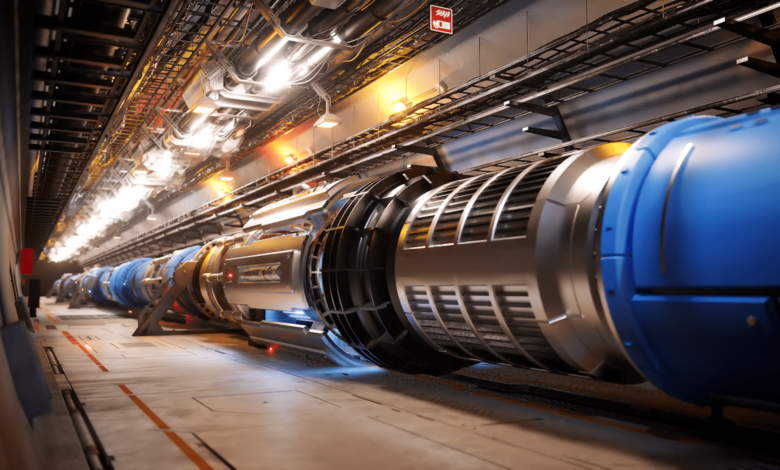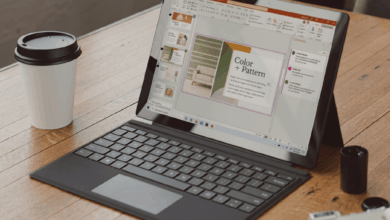The atom-smashing Large Hadron Collider’s successor will be 56 miles wide

The Large Hadron Collider (LHC) has been a groundbreaking scientific achievement, but scientists are always looking for ways to push the boundaries of knowledge further. After years of research and development, a team led by CERN has unveiled plans for the successor to the LHC, and it’s set to be even more impressive in size and scope.
The LHC, with its 17-mile-wide circular tunnel buried deep underground near Geneva, has allowed researchers to explore the fundamental forces of the universe. From confirming the existence of the Higgs boson to completing the Standard Model of Physics, the LHC has been instrumental in advancing our understanding of the cosmos.
However, as the quest for knowledge delves deeper into the mysteries of the universe, a larger and more powerful particle accelerator is needed. Enter the Future Circular Collider (FCC), a proposed project that dwarfs the LHC in both size and capabilities.
The FCC, with a diameter of over 56 miles, will be more than three times the size of the LHC. It will include eight surface laboratory sites overseeing four ongoing experiments and will feature a tunnel with a diameter of 16 feet, buried at an average depth of 656 feet.
The feasibility study for the FCC outlines two main stages: an electron-positron collider and a proton-proton collider. The electron-positron collider will focus on producing particles like the Higgs boson, while the proton-proton collider aims to generate unprecedented collision energies of around 100 tera-electronvolts.
While the FCC is still in the planning stages and awaits approval from CERN’s member countries in 2028, the potential for groundbreaking discoveries is immense. The estimated $16 billion project is expected to be a multigenerational endeavor, with operations slated to begin in the mid-2040s and a second phase commencing around 2070.
The impact of the FCC extends beyond theoretical physics, with potential benefits in superconducting materials for medical applications, fusion energy research, and improvements in electricity transmission. The FCC represents a bold step forward in our quest to unravel the mysteries of the universe and pave the way for future scientific advancements. As we enter a new year, many of us are filled with hope and excitement for what lies ahead. The start of a new year is often seen as a fresh start, a chance to set new goals and make positive changes in our lives. However, for some, the new year can also bring feelings of anxiety and uncertainty about what the future may hold.
One of the key reasons why the new year can be a source of anxiety for some is the pressure to set resolutions and make drastic changes in our lives. While setting goals and working towards self-improvement can be beneficial, the pressure to make significant changes overnight can be overwhelming and unrealistic. It’s important to remember that change takes time and that small, consistent steps towards our goals are often more effective than trying to make drastic changes all at once.
Another source of anxiety for many people at the start of a new year is the fear of the unknown. The future can be uncertain, and it’s natural to feel anxious about what lies ahead. However, it’s important to remember that we can’t control everything that happens in our lives, and that uncertainty is a normal part of the human experience. Instead of letting fear and anxiety paralyze us, we can choose to focus on the present moment and take things one step at a time.
One way to combat anxiety at the start of a new year is to practice self-care and prioritize our mental health. This can include activities such as meditation, exercise, spending time with loved ones, and seeking support from a therapist or counselor. Taking care of ourselves and practicing self-compassion can help us navigate feelings of anxiety and uncertainty and build resilience in the face of life’s challenges.
Ultimately, the start of a new year can be a time of both excitement and anxiety. It’s important to remember that it’s okay to feel anxious about the future, and that we can take steps to manage our anxiety and build resilience. By practicing self-care, setting realistic goals, and focusing on the present moment, we can navigate the new year with confidence and optimism.





